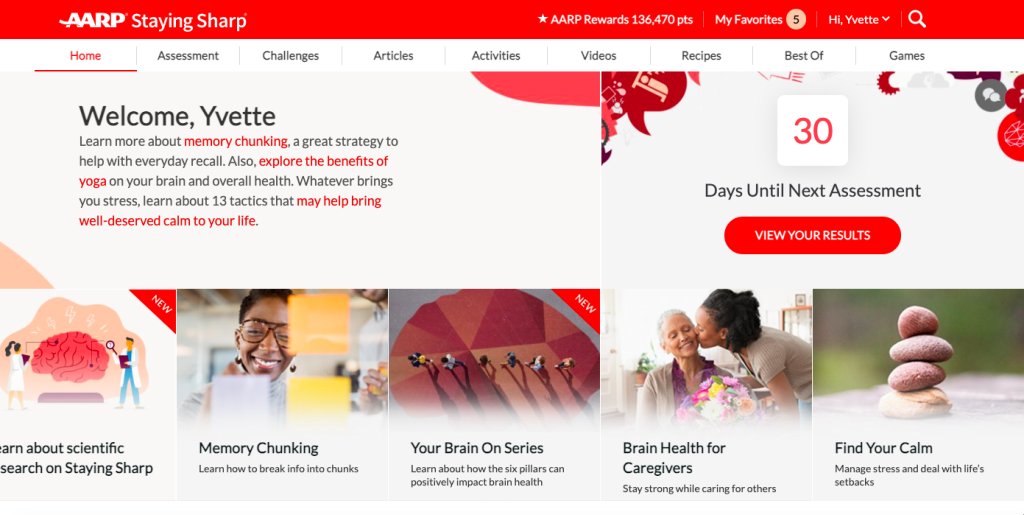
Improving memory in retirement is something a lot of us want to do. We want to make sure our brains continue to remain healthy throughout our lives.
This has been the month I’ve enjoyed most so far in my year of learning. I’ve been interested in memory since I was a kid. These days there are just so many resources available to us to help us with memory and brain health!
Improving Memory by Memorizing the US Presidents
So, the goal I picked to demonstrate my enhanced memory skills this month was to memorize the names of all the United States Presidents in order.
There are a lot of memorization techniques that I’m aware of. The easiest technique is The Story Method. You “picture” something that reminds you of each name and then create a story where the pictures interact with each other.
However, I didn’t want to just remember the President’s names. That’s the kind of rote memorization I did in elementary school. This time, I wanted to learn a little history, too.
I spent some time reading up a little on each President and even though I didn’t try to memorize each fun fact, I tried to picture the actual President rather than an insignificant picture (like a washing machine for Washington) when going through the list.
It was slow-going at first, but by practicing every day, I can rattle through them easily.
Different Types of Memory
I’ve heard this automatic memory be referred to as “muscle memory.” I found it fascinating as a child that I could remember how to play a piano piece just by practicing it enough times. It was as if my fingers knew how to play the piece without me having to tax my brain at all.
The problem would come, however, when I’d come to a certain spot in the piece and not be able to go on. This would be most likely to occur when I was up on stage, performing for an audience. I guess anxiety messes with your muscle memory.
In the Coursera Class I took this month, learning about memory through movies, I learned about these 4 types of memory systems:
- Working Memory – short-term retention
- Episodic Memory – memories of events, recollections
- Semantic Memory – maintains our acquired knowledge, facts
- Procedural Memory – enables us to learn and perform skills and actions, ie. Riding a bike, driving a car – demonstrate by doing it, not by describing it.
“Muscle Memory” seems like another version of “Procedural Memory.” However, I’m not sure if being able to recite something (like all the President’s names) without thinking would be considered a form of “procedural memory.” I’ll have to ask Jim Kwik about that.
I’m also curious about which type of memory helps us learn a new language. Learning a second language fluently is something I’ve always wanted to do, but it is much more difficult than simply memorizing vocabulary words.
I’ve heard, though, that learning a second language is one of the best things we can do to keep our brains healthy.
Resources for Improving Memory in Retirement
There are so many great resources available about brain health and memory improvement. This is definitely a topic that I’m going to continue to explore. Here are three resources that I highly recommend for improving memory in retirement:
AARP’s Staying Sharp
AARP’s Staying Sharp Program is an online resource that provides information and activities to help adults over the age of 50 stay mentally sharp. The program covers a variety of topics, including memory, problem solving, focus, and mental well-being. It also offers lots of activities, such as games, puzzles, and quizzes, to help users test their skills and learn new things. The program is free to use for AARP members.
Kwik Brain with Jim Kwik
I’ve been obsessively listening to the Kwik Brain podcast since I discovered it this month. Kwik covers a lot more than memorization in his podcast episodes. I’ve discovered that the brain is instrumental in every function of our life. I hadn’t realized how everything.. our emotions, our pain, our love, our insecurities, our actions.. are influenced so much by the thoughts we have. Many of these thoughts were influenced by conscious or unconscious memories and experiences.
Coursera: Understanding Memory Through Movies
The Coursera class, Understanding Memory Through Movies, has been informative and interesting. I’ve been listening to a lecture each morning, always with the thought: I want to watch that movie! The 5th and final set of lectures have been about memory in older age and have addressed topics related to Alzheimers and dementia. Though these are scary topics, the more we can learn, the more we can arm ourselves with knowledge of how to cope with memory issues.
What’s next?
So here we are on the last day of the month and I’m a little sad that my month of focused brain study is over.
However, my focus in May will be related! AARP is looking for a Benefits Badass! I’m going to focus on upping my game with videos, becoming a healthy-aging influencer, and digging deep into all that AARP has to offer. Whether or not I win the prize, by the end of the month, I will be an AARP Benefits Badass!


One thought on “April Learning: Improving Memory in Retirement”
Comments are closed.